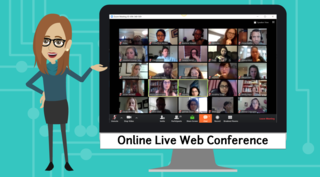Race and Ethnicity
Why Are Conversations on Race Often Futile?
Calls for ‘national conversations’ on race relations often end up being debates.
Posted July 28, 2017

Having recently finished teaching the Harvard summer course 'The Psychology of Diversity' and writing a textbook The Science of Diversity, I would like to share a lesson on teaching about sensitive topics.
Calls for national conversations and town hall meetings to talk about 'race relations' or ‘personal biases’ or 'discrimination' generally end up being debates and politicized.
Similarly, conversations on these topics in the classroom can end up as arguments.
Students get locked into positions they already have. People do more fighting and defending than conversing. And few subjects start more online and classroom fights and debates than race, bias, slavery, and discrimination.
What tends to go missing from these conversations is a facilitated dialogue using the dialectical method. This is the method used in science and problem-solving education. It is a dialectical between students and teachers holding different points of view about a subject but wishing to understand the other and test their views.
Personal views are the starting points of a working hypothesis. The outcome of such dialectic might be the refutation of a relevant view, or of a synthesis, or an integration of the opposing views, or a qualitative improvement of the dialogue. During this dialogue, students are posed with hypotheses relating to themselves and others and will feel increasingly challenged and obliged to understand the scientific challenge.
Because they understand the challenge as relevant to them and their lives, not just as a theoretical hypothesis, the resulting understanding tends to be critical and meaningful. Their responses to the scientific challenge evokes new challenges, followed by new understandings; and gradually some students and teachers come to regard themselves as committed to authentic reflection.
The good news is that data from fifteen years of course evaluations show that facilitated dialogues using the dialectical method can have a transformational impact on students’ lives. Students take away the experience that tolerance, perspective taking, and a scientific understanding of diversity are perquisites for conversing and building global community.
Copyright © Mona Sue Weissmark All Rights Reserved
References
Weissmark, M. (forthcoming). The Science of Diversity. Oxford University Press, USA.
Weissmark, M. (2004). Justice Matters:Legacies of the Holocaust and World War II. Oxford University Press, USA.
Weissmark, M. & Giacomo, D. (1998). Doing Psychotherapy Effectively. University of Chicago Press, USA.


